
Dennis O'Keefe was an American actor and screenwriter.

Wardell Edwin Bond was an American film character actor who appeared in more than 200 films and starred in the NBC television series Wagon Train from 1957 to 1960. Among his best-remembered roles are Bert the cop in Frank Capra's It's a Wonderful Life (1946) and Captain Clayton in John Ford's The Searchers (1956). As a character actor, Bond frequently played cowboys, cops and soldiers.

Thomas John Mitchell was an Irish-American actor and writer. Among his most famous roles in a long career are those of Gerald O'Hara in Gone with the Wind, Doc Boone in Stagecoach, Uncle Billy in It's a Wonderful Life, Pat Garrett in The Outlaw, and Mayor Jonas Henderson in High Noon. Mitchell was the first male actor to gain the Triple Crown of Acting by winning an Oscar, an Emmy, and a Tony Award.
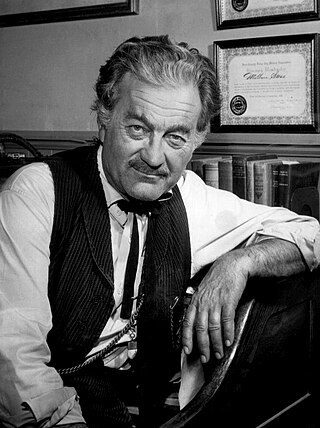
Hugh Milburn Stone was an American actor, best known for his role as "Doc" on the Western series Gunsmoke.

Edward Joel Pawley was an American actor of radio, films and Broadway. The full name on his birth certificate is Edward Joel Stone Pawley; he never used the Stone name, which derived from a Stone family in Illinois.

Steve Forrest was an American actor who was well known for his role as Lt. Hondo Harrelson in the hit television series S.W.A.T. which was broadcast on ABC from 1975 to 1976. He was also known for his performance in Mommie Dearest (1981).
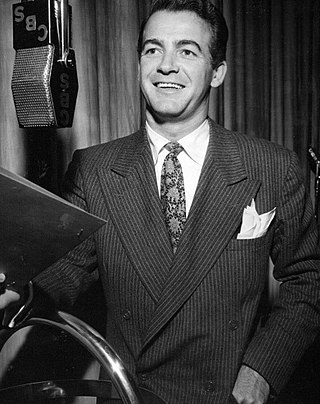
Mark Stevens was an American actor who appeared in films and on television. He was one of four men who played the lead role in the television series Martin Kane, Private Eye, appearing in 1953–54.

Barton MacLane was an American actor, playwright, and screenwriter. He appeared in many classic films from the 1930s through the 1960s, including his role as General Martin Peterson on the 1960s NBC television comedy series I Dream of Jeannie, with Barbara Eden and Larry Hagman.

Douglas Fowley was an American movie and television actor in more than 240 films and dozens of television programs, He is probably best remembered for his role as the frustrated movie director Roscoe Dexter in Singin' in the Rain (1952), and for his regular supporting role as Doc Holliday in The Life and Legend of Wyatt Earp. He was the father of rock and roll musician and record producer Kim Fowley.

Hillary Brooke was an American film actress.

Gerald Mohr was an American radio, film, and television character actor and frequent leading man, who appeared in more than 500 radio plays, 73 films, and over 100 television shows.

John Francis Regis Toomey was an American film and television actor.
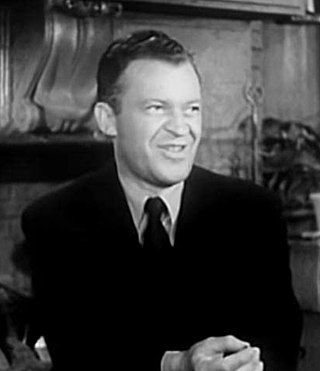
Frank Jenks was an American actor and vaudevillian.
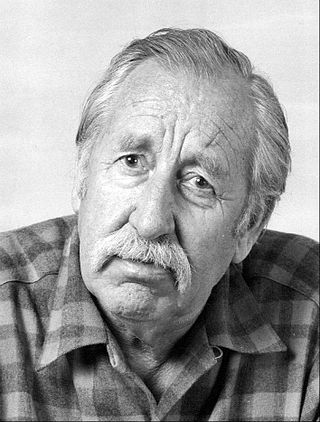
Frank S. Ferguson was an American character actor with hundreds of appearances in both film and television.
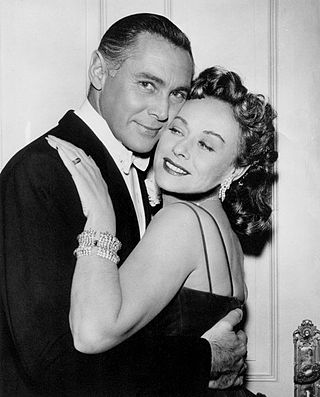
Phillip Reed was an American actor. He played Steve Wilson in a series of four films (1947–1948) based on the Big Town radio series.

I Cover Big Town is a 1947 American drama film directed by William C. Thomas and written by Maxwell Shane. The film stars Phillip Reed, Hillary Brooke, Robert Lowery, Robert Shayne, Mona Barrie and Vince Barnett. It was released on February 27, 1947 by Paramount Pictures and was the second in the Big Town series of films.

Big Town Scandal is a 1948 American crime film directed by William C. Thomas and written by Milton Raison. The film stars Phillip Reed, Hillary Brooke, Stanley Clements, Darryl Hickman, Carl Switzer and Roland Dupree. It was released on May 27, 1948 by Paramount Pictures. The film was the fourth and last one in a series of four films based on the long-running radio program Big Town.
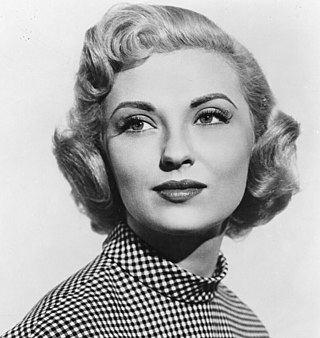
Beverly Tyler, was an American film actress and singer who was a minor MGM leading lady who appeared in mostly B movies in the 1940s and 1950s.

This is the complete filmography of actress Beverly Tyler.
Big Town is an American television dramatic series that was broadcast beginning on October 5, 1950, and ending on October 2, 1956. It began on CBS and moved to NBC in 1954.



















